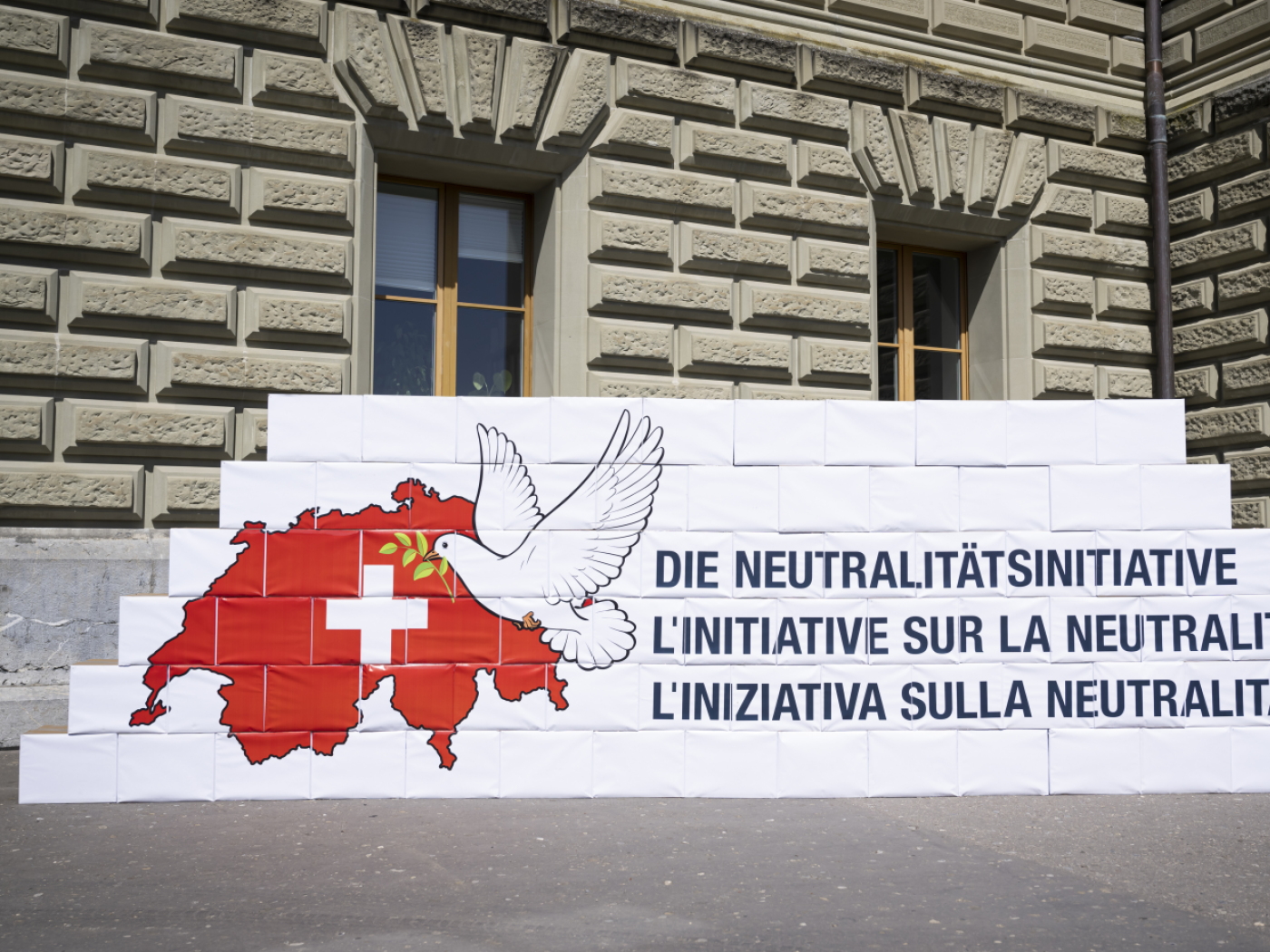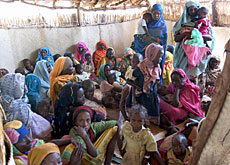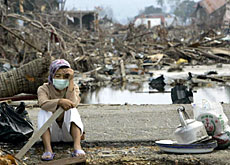
Countries urged not to plunder aid coffers

As Asia’s tsunami disaster sparks a wave of generosity, aid organisations are urging donors not to forget the plight of people in other parts of the world.
The Swiss Agency for Development and Cooperation (SDC) says the relief effort should not come at the expense of humanitarian crises in countries like Sudan.
“Our immediate concern is the victims in Asia, but it would be a shame if long-term help to other areas of crisis or conflict was short changed because of the tsunami aid effort,” said an SDC spokesman, Thomas Jenatsch.
“We certainly don’t want to discourage giving but we must insist that governments which engage sums of money do not compensate from their development budgets,” he told swissinfo.
“Donor countries must ensure that the relief money is not just simply transferred from one pot to another.”
Jenatsch said that the Swiss government’s pledge of SFr27 million ($22.9 million) in emergency funds for the tsunami survivors had been released as additional financing and would not come out of the SDC’s regular aid budget.
Poorest continent
The United Nations’ emergency relief coordinator, Jan Egeland, has also encouraged donor countries not to plunder their annual development coffers.
“If the world takes all the money for the tsunami victims out of their normally allocated purse for humanitarian relief, it would be destruction for programmes in Africa,” Egeland said.
“If it was a zero sum game, it would be very bad news for Guinea, Congo and Sudan,” he added.
Meanwhile, the regional director for the UN’s World Food Programme (WFP) in southern Africa, Mike Sackett, said he was “very worried” that the tsunami crisis would leave less money available for the world’s poorest continent.
“We’ve already found it difficult to get resources to feed people in southern Africa,” Sackett told Reuters news agency.
Even before the tsunami disaster struck, WFP officials had already cited a severe decline in contributions from donors who were “beset by compelling demands from numerous crises”.
In late December, the agency said it had been forced to cut back rations to more than 2.8 million people in southern Africa as the result of a lack of funding.
Emotional response
Now, with the world’s attention firmly fixed on Asia, aid officials hope members of the public might be willing to dig even deeper into their pockets to help those in need elsewhere.
But Jenatsch says the outpouring of tsunami sympathy is unlikely to spark a giving trend.
“The emotional impact of the tsunamis has generated a lot of solidarity and willingness to give,” Jenatsch told swissinfo.
“But most people are reacting to what they see and hear in the news, while others were directly affected by the tragedy… so donating is an emotional response.”
He added that it was difficult to raise awareness for areas such as Sudan – where fighting has left an estimated 1.6 million people homeless – because the public tends to blame the warring parties for making their own mess.
“It’s hard ask for money for the victims of conflict because the situation is perceived as being their own fault,” Jenatsch said. “The tsunami was a natural disaster so on top of the emotion, there’s no one to blame.”
swissinfo, Anna Nelson in Geneva
According to the WFP, child mortality rates are 8 times higher in Africa than Europe, mainly because of malnutrition.
Aid agencies say around 6,500 Africans die of preventable diseases each day.
In the Darfur region of Sudan, fighting between rebel and government troops has left tens of thousands dead and more than 1.6 million homeless.
In 2002, $19.4 billion were spent on official development assistance and aid to sub-Saharan Africa.
The Swiss government has pledged SFr27 million in aid and has sent 24 forensic specialists to Thailand to help identify victims of the tsunami.
Meanwhile, the Swiss public has donated SFr114 million to the countries affected by the Asian disaster, surpassing previous giving records.
Half the money was donated during a day of national mourning and fundraising on Wednesday.

In compliance with the JTI standards
More: SWI swissinfo.ch certified by the Journalism Trust Initiative






































You can find an overview of ongoing debates with our journalists here . Please join us!
If you want to start a conversation about a topic raised in this article or want to report factual errors, email us at english@swissinfo.ch.